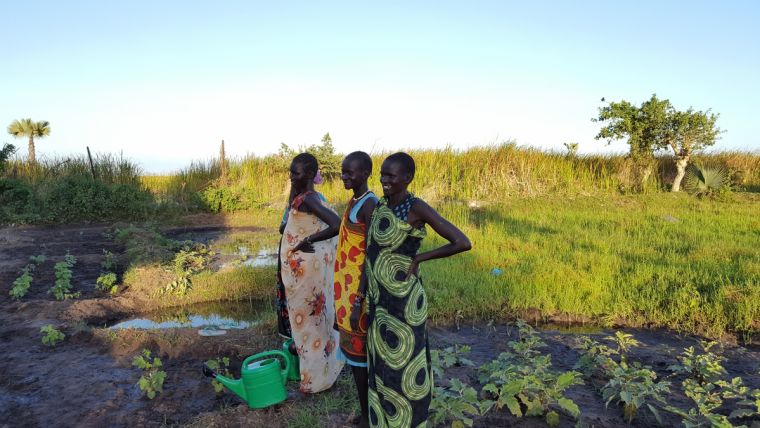South Sudan has been struck by famine. This is how a Christian charity is helping
Often it is in places of most human suffering that we hear stories of the greatest human resolve and resilience. South Sudan is one of those places.
Riven by conflict and now famine, the country's majority Christian population have been pushed to the brink of what they can bear. In Unity State where I visited last month, I heard terrible stories of people being forced to escape the fighting by fleeing into the swamps. They walked for five days through water that was at times up to their necks, carrying on their backs their elderly and disabled. They would sleep on little islands and eat the roots of waterlilies. Tragically many children drowned on the way.

Despite the harrowing experiences the people that survived are determined to make a life for themselves. The area is a safe haven, surrounded by wetlands which means it is currently cut off from much of the fighting.
But the same wetlands that make it free from conflict also disrupt trade routes and make it almost impossible to get in supplies. Food dropped from the air is helping to keep the famine at bay but this is just the equivalent of keeping an open wound from being infected. What is needed is a proper bandage and time for it to heal. This comes in the form of more sustainable solutions being provided by a local organisation called UNIDO, which is a partner of Christian Aid. UNIDO is rooted in Unity State, its staff live there and know the people they are helping.

The first thing UNIDO does is to provide screening to check for malnutrition in babies and mothers. By catching it early they then provide food supplements to give the most vulnerable the best chance they can for survival.
UNIDO staff have also provided fish hooks and nets so people can harvest fish from the surrounding rivers. The famous line about giving a man a fish and he'll eat for a day but teaching him to fish will let him eat for a lifetime, is well known. But in South Sudan it is more than just a proverb, it's being lived out in practice. The tilapia, perch and other fish which can be caught, given the right equipment, not only help to boost the nutrition of local people's diets, but also any excess can be sold in the market which brings in money for other things they need.
The third part of the famine-busting work is teaching the new arrivals what can be grown in 'demonstration gardens'. These plots of land show farming techniques and tips on planting to get the most out of the earth. Along with fast- growing seeds and tools these have proved hugely successful with lots of people interested in the okra, aubergine and other vegetables that have been grown. When food is scarce it is a serious calorific investment to physically plant and water these gardens so it's good to see them bearing fruit and even generating extra which again can be sold in the market.
Despite the hardship people in South Sudan remain faithful that their country will recover. People are praying hard for peace. They have hopes that the expected joint visit by the Archbishop of Canterbury and Pope Francis later this year may focus minds and ensure that peace talks will replace fighting and bring about national healing.
Until then, UNIDO will be with the people in South Sudan helping them get the tools to sustain their livelihoods and keep the flame of hope alive.
Joe Ware is a writer and journalist at Christian Aid. He writes at the beginning of the annual Christian Aid week.
You can help to change the lives of refugees fleeing conflict and crisis by donating online at www.caweek.org calling 08080 006 006, or texting 'GIVE' to 70040 to give £5.











